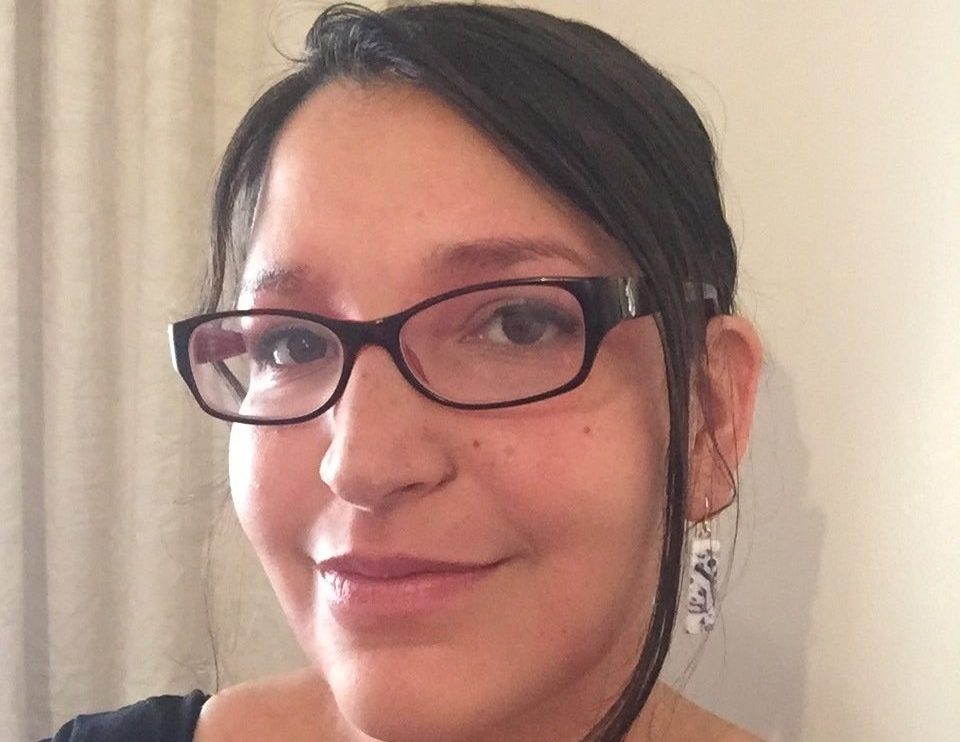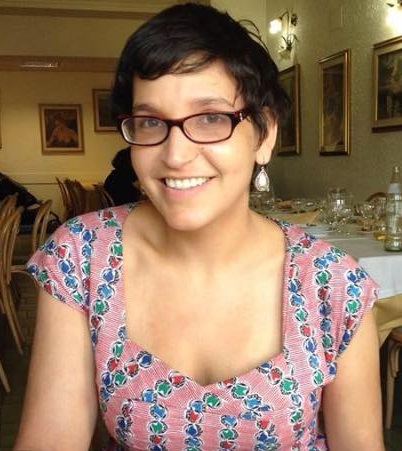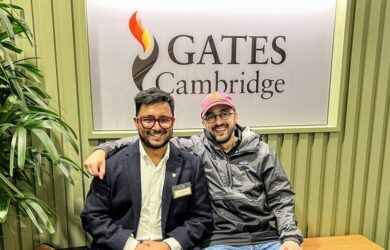
Andrea Kusec's research investigates how engagement in meaningful activity can help brain injury patients' rehabilitation.
In the hospital, doctors’ and therapists’ main complaint was that patients were not motivated. You could have the best therapy in the world, but if someone didn't want to do it, it wouldn't work.
Andrea Kusec
Andrea Kusec’s research investigates a vital factor in the rehabilitation of patients who have suffered a brain injury: mental health. One in three people suffer depression after brain injury and those who have suffered a brain injury are three times more likely to commit suicide compared to those without a brain injury. That depression, Andrea [2017] argues, is often overlooked despite significantly affecting the progress they make in rehabilitation and being a major barrier to their long-term recovery.
Experience as a volunteer at Toronto Rehabilitation Institute while Andrea was an undergraduate influenced her desire to understand and improve rehabilitation. “It was fascinating to see how people who had been through horrible accidents, had tumours, or major trauma could progress so much week after week,” she says. Since moving to Cambridge, Andrea has also started volunteering with brain injury patients at Addenbrooke’s Hospital and says that providing patients with opportunities to socialise is an important part of their rehabilitation.
For her PhD she is conducting a pilot feasibility trial to understand what interventions work to treat depression after brain injury. She is interested in how behavioural activation therapy can be an effective treatment. Behavioural activation theory states that people who are depressed tend to engage less in meaningful activities and may avoid work or chores, spend less time with friends and isolate themselves from others. The problem with this is that not taking part in meaningful activities creates a “vicious cycle” that worsens the depression, which in turns leads to even further isolation and low mood, says Andrea. Encouraging patients to plan and engage more in things that are important to them can boost mood and hence motivation to take part in rehabilitation or other important activities. She states: “This simple but elegant approach is well-suited to brain injury as patients can struggle with complex interventions that place heavy demands on memory, attention or mental flexibility.”
Childhood
Andrea is a first-generation Canadian and was born in Toronto. Her mother was from Peru and her father from Croatia, both having immigrated to Canada in their early 20’s. She says that mix gave her a very multicultural perspective on life and an appreciation of diversity.
As a child she loved art, creating things and looking at the world from different angles. “I was interested in psychology and in understanding different thoughts and feelings. My interest in art was related to that desire to understand myself and the world,” she says. At high school she became interested in philosophy for much the same reason.
Andrea has a personal connection to her research, having developed epilepsy as a result of a brain injury when she was a teenager. When she was 13 she attended a friend’s party at a lake where, after a boating accident, she hit the water head first. After she got out of the water she started feeling very tired and tried to sleep it off. At the time she didn’t know that after a blow to the head the best course of action is to stay awake. She had a seizure and lost consciousness before being rushed to hospital. Several other seizures followed and she was eventually diagnosed with epilepsy.
Andrea found high school hard. It was difficult to concentrate and she needed more sleep as a result of her brain injury. Other people, however, thought she was lazy. Her confidence fell. She found it easier to cope by putting her tiredness down to being a teenager, but she was determined to prove people wrong so she struggled against the fatigue. Her mother encouraged her to keep busy and she joined the badminton, newspaper and debate clubs and worked part-time at a grocery store. Her epilepsy also had an impact on her mental health. She felt constrained by her need to sleep more and frustrated by the fact that her parents were more protective of her.
University
After high school, Andrea began her undergraduate degree in psychology at Ryerson University. When she was in her last year of high school her mother was diagnosed with cancer. In 2009, in her first year at university, Andrea’s mother died. After taking some time out and throwing herself into work, she tried to get back into student life in her second year, but she found it very difficult.
Things began to turn around in early 2011. Andrea developed an interest in mental health and started volunteering in the laboratory of Dr Naomi Koerner who specialises in anxiety disorders. She loved doing research and was involved in multiple projects with Dr Koerner. “Looking back, getting involved in research was my own ‘behavioural activation’ so to speak – what helped get me through my mom’s passing was taking part in something meaningful and important to me,” Andrea says.
From May 2012 Andrea also volunteered at Dr Meg Moulson’s laboratory which specialised in infant development. While Dr Koerner is a clinical psychologist, Dr Moulson is an experimental psychologist. “It was really interesting to see the two different approaches and how they might be combined,” says Andrea. In the year before she did her master’s Andrea became lab manager in Dr Koerner’s laboratory, learning the kind of laboratory skills that would prove useful when she started graduate school.
She began a two-year master’s in Rehabilitation Science at McMaster University in 2014 with Dr Jocelyn Harris. Her focus was on patients’ motivation and engagement after brain injury. “In the hospital, doctors’ and therapists’ main complaint was that patients were not motivated. You could have the best therapy in the world, but if someone didn’t want to do it, it wouldn’t work,” says Andrea.
She conducted a psychometric study with patients at Hamilton Health Sciences Regional Rehabilitation Centre. It looked at how their motivation and engagement could be assessed within a year of injury. She says it is difficult to find overall trends in patients’ motivation as people’s response is very individual – what can affect one person’s motivation could be very different from what affects another’s. Andrea believes it is important to understand internal factors of motivation, such as attitudes toward rehabilitation, as well as the various external factors, such as a patient’s relationship with doctors and therapists. She says internal factors might cause greater change in the long term, but external factors are easier for health services to address. Two papers on this research have been published.
Cambridge
Andrea was keen to continue her studies by doing a PhD which balanced psychology and rehabilitation. Her PhD thesis is supervised by Dr Tom Manly at the MRC Cognition and Brain Sciences Unit. Dr Manly’s work specialises in neuropsychological rehabilitation of patients with brain injury, an important but relatively rare field of research globally. Andrea hopes to continue working in this field and help identify new treatments for mental health difficulties in brain injury.
As a Gates Cambridge Scholar, she serves on the Scholars Council as the current Internal Officer and was Social Officer in 2018. She says she has met some of her best friends through Gates Cambridge. She states: “The Gates community challenges you to be a better person, to consider how you can best contribute to this global network.”

Andrea Kusec
- Alumni
- Canada
- 2017 PhD Biological Science at the MRC Cognition and Brain Sciences Unit
- Fitzwilliam College
I became interested in the brain and mind when I was diagnosed with epilepsy at age 13. I pursued a BA in Psychology at Ryerson University, where I became interested in the development and treatment of cognitive biases in mood disorders. While volunteering on the Acquired Brain Injury (ABI) Unit of Toronto Rehabilitation Institute, I developed an interest in designing treatments for cognitive and emotional difficulties in individuals with an ABI that account for their unique impairments. To further my knowledge of ABI, I obtained an MSc in Rehabilitation Science at McMaster University. Many people with an ABI have symptoms of depression, but available methods of treating mood disorders such as Cognitive Behavioural Therapy fall short because they rely heavily on domains often compromised in ABI, such as mental flexibility, comprehension, and memory. As a student in the Cognition and Brain Sciences Unit, I will investigate whether depression in ABI can be treated by increasing engagement in positive activities, and whether this treatment can be enhanced through cognitive training to facilitate planning and engagement in such activities. If effective, this research could immediately influence rehabilitation services worldwide.
Previous Education
Ryerson University
McMaster University












